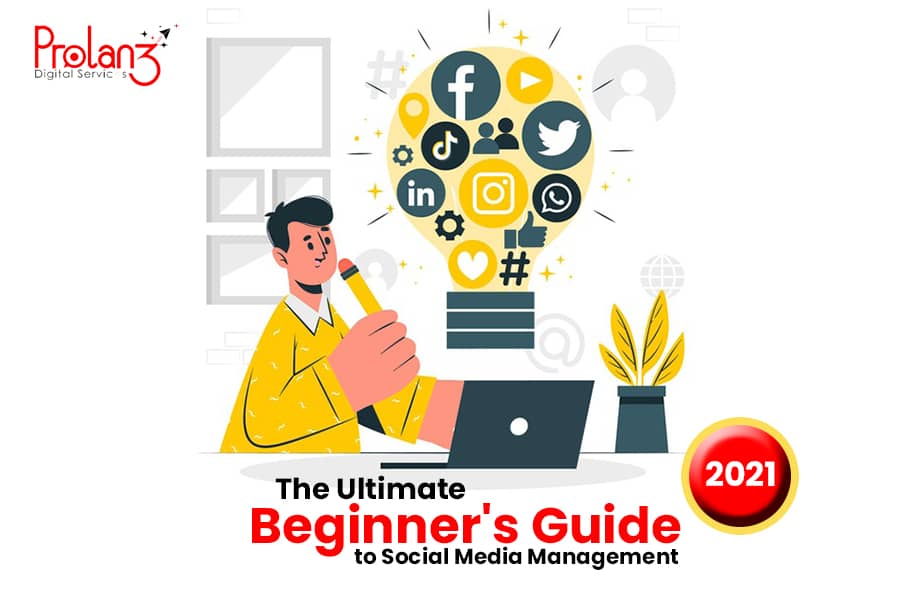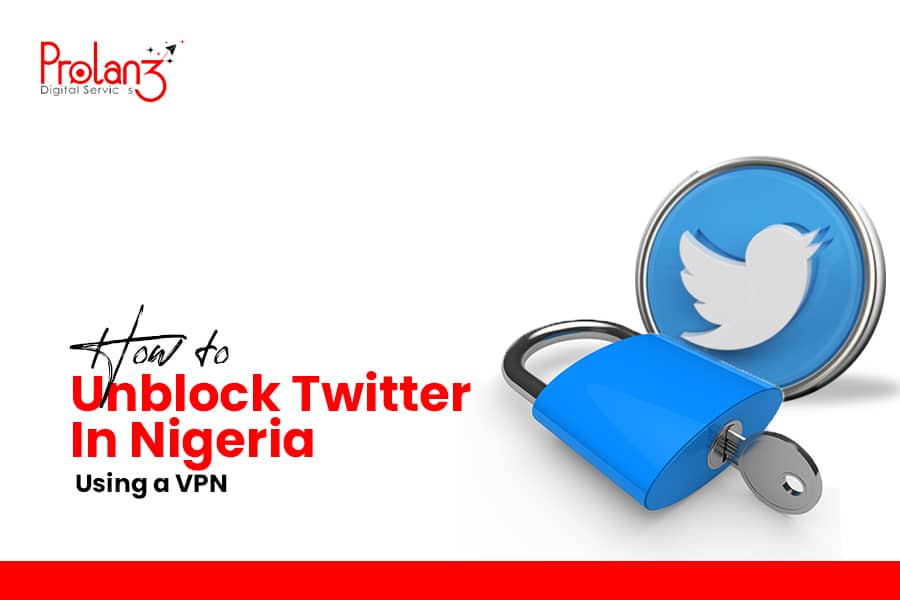Are you a creative individual who loves working with videos? Do you aspire to become a video editor and earn a lucrative income in Nigeria? This article is your ultimate guide to making your dreams come true. In this comprehensive guide, we will explore step-by-step how to become a video editor in Nigeria and make money.
Video editing has become one of the most demanded skill today, and it offers huge potential for success. Let’s start with its profitability.
Is Video Editing Lucrative in 2024? Why Choose Video Editing as a Career in Nigeria?
In 2024, video editing continues to be a lucrative and promising career in Nigeria, where the demand for quality video content is growing. The increasing usage of social media, online marketing, and digital content creation has made video editing a critical skill in various industries.
1. High Demand Across Industries
With businesses increasingly relying on video for marketing, brand awareness, and communication, the demand for skilled video editors is at an all-time high. This demand spans multiple sectors, including entertainment, advertising, education, and social media. In Nigeria, the growing popularity of Nollywood films, music videos, and online content has further increased the need for proficient video editors.
2. Potential for High Earnings
While the salary for video editors in Nigeria can vary depending on experience and the type of work, there is considerable potential for high earnings. Entry-level editors might start with modest fees, but as they build their portfolios and gain experience, they can command higher rates. In-house editors or those working with established brands or production companies often earn competitive salaries, while freelancers can earn significant income by taking on multiple projects.
3. Technological Advancements and Accessibility
The barriers to entering the video editing field have significantly decreased over the years. Free/affordable video editing software and easy access to online tutorials have made it easier for anyone to learn and master the craft.
Skills You Need to Become a Video Editor in Nigeria
Becoming a successful video editor in Nigeria involves mastering a blend of technical skills, creative abilities, and personal attributes. This section will guide you through the essential skills needed to start video editing in Nigeria.
1. Technical Skills
To begin as a video editor in Nigeria, proficiency in video editing software is crucial. The most commonly used software includes Adobe Premiere Pro, Final Cut Pro, and DaVinci Resolve. Here’s how you can get started:
- Adobe Premiere Pro: A versatile and powerful tool used by professionals worldwide. Start by learning basic functions such as cutting, trimming, and adding transitions. You can use the Razor Tool (C key) for cutting clips and the Selection Tool (V key) to move them around.
- Final Cut Pro: Popular among Mac users, it offers a streamlined interface for editing. Begin by understanding the magnetic timeline, which automatically snaps clips together, and experiment with the blade tool to cut segments of your video.
- DaVinci Resolve: Known for its advanced color grading features, it’s also an excellent editing tool. You can start by learning the basics of color correction using the Color Wheels and cutting clips with the Blade Edit Mode.
In addition to mastering software, you’ll need to understand different video formats, compression techniques, and exporting settings to ensure your videos are of high quality and compatible with various platforms.
2. Creative Skills
Creativity is the heart of graphics design and video editing. As a video editor in Nigeria, you’ll need to develop a strong sense of timing, pacing, and visual storytelling. Here are some creative skills to cultivate:
- Storytelling: Know the narrative flow of your videos. Every cut you make should serve the story you’re telling. Practice by editing short clips and focusing on how each scene transitions to the next.
- Color Grading: Learn to enhance the visual appeal of your videos by adjusting colors. Use tools like Lumetri Color in Premiere Pro or Color Wheels in DaVinci Resolve to create mood and tone.
- Sound Design: Good audio is as important as good visuals. This include soundtracks, voiceovers, and sound effects. In Premiere Pro, you can use the Audio Track Mixer to adjust levels and the Essential Sound Panel to clean up and enhance audio quality.
3. Problem-Solving Skills
Video editing is not without challenges. Software crashes, missing files, or a scene that just doesn’t fit can be common problems. Being able to solves or make the project a success in spite of these issues is a valuable skill. You can join online forums, like Adobe’s or Blackmagic Design’s communities, where you can find solutions to common problems.
4. Soft Skills
While technical and creative skills are essential, soft skills are equally important. Here are a few to focus on:
- Communication: You’ll need to effectively communicate with clients, directors, or your team to understand their vision and deliver the desired output.
- Time Management: Deadlines are often tight in the video editing industry. Develop a workflow that allows you to efficiently manage your time and meet deadlines.
- Networking: Building connections in the industry can open doors to more opportunities. Attend local film festivals, join video editing groups online, or participate in workshops to meet other professionals and learn from their experiences.
Also Read
How to Start Social Media Marketing for Your Business in Nigeria
Step-by-Step Guide to Becoming a Video Editor in Nigeria
Becoming a video editor in Nigeria offers a pathway to a lucrative and creative career. This step-by-step guide will walk you through the essential actions to take if you want to start video editing in Nigeria.
1. Choose the Right Video Editing Software
Selecting the right software is a crucial step. In Nigeria, popular video editing software are mentioned below. Note that each software has its learning curve, so choose one that matches your current skill level and future goals.
- Adobe Premiere Pro: Known for its professional-grade tools and wide range of features. It’s ideal for those aiming to produce high-quality content.
- Final Cut Pro: Best for Mac users, offering powerful editing tools.
- DaVinci Resolve: A free option that provides high-end video editing features, especially color correction.
- iMovie: Suitable for beginners, particularly those using Apple devices.
- Capcut, KineMaster and InShot: Mobile-friendly apps for those who want to edit videos on the go.
2. Learn the Basics of Video Editing
Once you have chosen your software, it’s time to learn the basics. Start by familiarizing yourself with the interface of your chosen software. Here are the key steps:
- Importing Footage: Learn how to import video files into the software.
- Trimming and Cutting: Practice cutting out unwanted portions of your clips.
- Arranging Clips on the Timeline: Learn how to sequence your clips in a logical and aesthetically pleasing order.
- Adding Transitions: Experiment with transitions like fades, wipes, and dissolves to smooth out cuts between clips.
- Basic Audio Editing: Understand how to adjust volume levels, add music, and synchronize audio with video.
- Exporting the Final Video: Finally, learn how to export your project in the desired format.
3. Practice with Real Projects
The best way to improve is by practicing with real projects. Start by editing short videos, such as vlogs, social media content, or even home videos. This hands-on experience will help you build a portfolio, which is crucial when seeking clients or jobs.
4. Develop Your Skills
To stand out as a video editor in Nigeria, continuous skill development is necessary. Here are areas to focus on:
- Color Correction and Grading: Learn how to adjust colors to enhance the visual appeal of your videos.
- Sound Editing: Practice cleaning up audio and adding sound effects to create a more immersive experience.
- Motion Graphics: Consider learning Adobe After Effects or similar software to create engaging titles and animations.
- Storytelling: Understanding the narrative flow is essential. Good editing is not just about cutting clips together but telling a compelling story.
5. Build a Strong Portfolio
Your portfolio is your ticket to landing jobs or freelance gigs. Include a variety of projects in your portfolio, showcasing different styles and types of editing. Highlight your ability to work on various formats, such as promotional videos, interviews, or documentaries.
6. Network and Gain Experience
Networking is key in the Nigerian creative industry. Join online communities, attend industry events, and collaborate with other creatives. Gaining experience through internships or entry-level positions will also open doors to more opportunities.
7. Consider Certification
While formal education isn’t necessary, obtaining certification can set you apart. Adobe offers certifications like the Adobe Certified Professional in digital video using Premiere Pro, which can validate your skills to potential employers or clients.
8. Monetize Your Skills
Finally, once you have honed your skills and built a portfolio, it’s time to start making money. You can monetize your video editing skills by:
- Freelancing: Offer your services on platforms like Upwork, Fiverr, or Freelancer.
- YouTube: Create and monetize your own content by starting a YouTube channel.
- Social Media: Provide video editing services to social media influencers or brands.
- Corporate Clients: Work with businesses to create promotional or training videos.
Also Read
How to Run Facebook Ads for Your Business in Nigeria
How to Make Money as a Video Editor in Nigeria
Making money as a video editor in Nigeria is not just about having the right skills; it’s also about knowing where to find opportunities and how to market yourself effectively. Here’s a comprehensive guide to help you start making money as a video editor in Nigeria.
1. Freelance Platforms
One of the most straightforward ways to earn money is by offering your video editing services on freelance platforms. Websites like Upwork, Fiverr, and Freelancer are popular globally and have many clients looking for video editors. Create a strong profile showcasing your best work, and tailor your proposals to fit the needs of potential clients. Specializing in a niche, like corporate videos or wedding films, can help you stand out and charge higher rates.
2. Sell Video Templates and Stock Footage
Another way to generate income is by selling video templates and stock footage. Platforms like Envato Elements and Shutterstock allow you to upload and sell your video templates, such as intros, transitions, and lower thirds. High-quality stock footage is always in demand by content creators, and this can be a source of passive income if you build a substantial library.
3. Create and Monetize a YouTube Channel
Consider starting a YouTube channel focused on video editing tutorials. As you grow your audience, you can monetize your channel through ad revenue, sponsorships, and affiliate marketing. The key is to provide value by sharing tips, tricks, and tutorials that help others learn video editing. This not only generates income but also establishes you as an authority in the field, which can lead to more freelance opportunities.
4. Offer Online Courses and Coaching
Teaching video editing can be highly lucrative, especially as more people look to learn new skills online. You can create and sell courses on platforms like Udemy or Skillshare, or offer one-on-one coaching sessions. This is an excellent way to make money while sharing your expertise with others who want to start video editing in Nigeria.
5. Work with Local Businesses and Brands
Many businesses in Nigeria need video content for marketing, but not all of them have in-house video editors. Reach out to local businesses, especially small and medium-sized enterprises (SMEs), and offer your services to create promotional videos, social media content, or ads. Building relationships with local businesses can lead to long-term contracts and steady income.
6. Monetize Your Own Video Content
If you create your own video content, consider selling it directly to consumers. You can set up your own video-on-demand service, where people pay to access your content. This approach requires more initial effort, but it gives you full control over your pricing and revenue.
Conclusion
Starting a career as a video editor in Nigeria can be incredibly rewarding, both creatively and financially. The first step might seem hard, but remember that every expert was once a beginner. Now is the time to take that first step and begin your journey in the never-boring field of video editing.
If you’re a business owner or content creator looking for more engagement on your content, our expert video editing services will help you stand out in the crowded digital space. We know the power of storytelling through video, and we’re here to transform your raw footage into compelling content that engages your audience and drives results.
Take the first step today. Contact us now.
Frequently Asked Questions on How To Become a Video Editor in Nigeria and Make Money
1. How can I become a video editor in Nigeria?
To become a video editor in Nigeria, start by learning the basics of video editing software like Adobe Premiere Pro, Final Cut Pro, or DaVinci Resolve. Practice by editing short clips and tutorials, then build a portfolio showcasing your work. Consider taking online courses or attending local training to improve your skills. Networking and applying for internships or freelance jobs will help you gain experience and enter the industry.
2. How do I start earning money with video editing?
You can start earning money with video editing by offering freelance services on platforms like Upwork, Fiverr, or Freelancer. Building a strong portfolio and showcasing it on social media can attract clients. You can also work with local businesses to create promotional videos or join content creation platforms where you can compete for paid projects.
3. What skills do video editors need?
Video editors need a combination of technical and creative skills. These include proficiency in video editing software, an understanding of video formats and codecs, storytelling ability, attention to detail, and the ability to work under tight deadlines. Creativity, problem-solving, and strong communication skills are also essential.
4. How do I get my first job as a video editor?
To get your first job as a video editor, start by creating a portfolio with sample projects. You can volunteer to edit videos for friends or local businesses to build experience. Apply for internships or entry-level positions at media companies, or start as a freelancer on online platforms. Networking with professionals in the industry can also help you find job opportunities.
5. How do I start a career in video editing?
Starting a career in video editing involves learning the necessary skills, building a portfolio, and gaining experience through internships or freelance work. Consider specializing in a niche, such as wedding videos or corporate films, to stand out. Continuous learning and networking are crucial to advancing in this field.
6. Can I be a video editor without a degree?
Yes, you can become a video editor without a degree. Many successful video editors are self-taught or have learned through online courses, tutorials, and practical experience. A strong portfolio and proven skills are often more important than formal education in this industry.
7. How do I get into video editing with no experience?
To get into video editing with no experience, start by learning the basics through online tutorials and practicing with free or trial versions of video editing software. Create personal projects or volunteer to edit videos for friends or local organizations. Building a portfolio, even with self-made projects, will help you showcase your skills to potential employers or clients.
8. How long does it take to become a video editor?
The time it takes to become a video editor varies depending on your learning pace and dedication. On average, it may take 3 to 6 months to learn the basics, while becoming proficient can take 1 to 2 years of practice and experience. Continuous learning is essential as video editing software and techniques evolve.
9. How much does a beginner video editor make?
A beginner video editor in Nigeria can expect to earn between ₦50,000 to ₦150,000 per month, depending on the type of projects they work on and their level of skill. Freelance rates vary widely, with editors charging anywhere from ₦5,000 to ₦50,000 per project based on complexity and duration.
10. Are video editors in demand?
Yes, video editors are in demand, especially with the rise of digital media, online content creation, and social media marketing. Businesses, influencers, and content creators require skilled video editors to produce engaging content, making it a growing field with many opportunities.
11. Does video editing pay well in Nigeria?
Video editing can pay well in Nigeria, especially as you gain experience and build a strong portfolio. Experienced video editors can earn substantial income, particularly if they work with high-profile clients or specialize in a lucrative niche like corporate videos or social media content.
12. How much is a video editor paid in Nigeria?
Video editor salaries in Nigeria vary based on experience and the type of work they do. On average, a full-time video editor can earn between ₦100,000 to ₦500,000 per month, while freelancers may charge per project, with rates ranging from ₦5,000 to ₦100,000 depending on the complexity of the job.
13. How much is video editing training in Nigeria?
The cost of video editing training in Nigeria varies widely depending on the institution and course level. Online courses may cost between ₦10,000 to ₦100,000, while physical classes or workshops can range from ₦50,000 to ₦300,000 for comprehensive training programs.
14. How do I learn video editing?
You can learn video editing through online tutorials, courses on platforms like Udemy, Coursera, and LinkedIn Learning, or by attending local workshops. Start by practicing with free software like DaVinci Resolve, and gradually move on to more advanced tools as you build your skills.
15. Is video editing difficult to learn?
Video editing can be challenging to learn, especially at the beginning, but with consistent practice and dedication, it becomes more manageable. Understanding the software, storytelling techniques, and the creative process are key areas to focus on. The complexity of learning also depends on the type of projects you want to work on.
16. Can I learn video editing in 3 months?
Yes, you can learn the basics of video editing in 3 months with focused effort and consistent practice. This timeframe is sufficient to grasp essential tools and techniques, but becoming proficient and industry-ready may require more time and experience.
17. How can I learn video editing at home for free?
You can learn video editing at home for free using resources like YouTube tutorials, free courses on websites like Khan Academy, or by using free software like DaVinci Resolve. Many online platforms offer free trials for premium courses, and there are numerous forums and communities where you can get advice and feedback.
18. How do I start learning video editing?
Start learning video editing by choosing the right software, such as Adobe Premiere Pro or DaVinci Resolve, and watching beginner tutorials on YouTube. Practice by editing simple projects, and gradually challenge yourself with more complex tasks as you become comfortable with the software.
19. How do I start my editing career?
Start your editing career by building a strong portfolio with a variety of projects that showcase your skills. Apply for internships or entry-level positions at media companies, or begin freelancing on platforms like Upwork or Fiverr. Networking with industry professionals and continuously improving your skills will help you advance in your career.
20. Do you need qualifications to be a video editor?
Formal qualifications are not always necessary to become a video editor, but having a degree or certification in film production, multimedia, or a related field can be beneficial. What matters most is your skill level and the quality of your portfolio.
21. How many years is the editing course?
Editing courses can vary in length depending on the depth and level of study. Short-term courses or workshops may last a few weeks to a few months, while diploma or degree programs can take 1 to 4 years to complete.
22. Can video editing be a side hustle?
Yes, video editing can be a great side hustle. Many video editors start part-time, taking on freelance projects during evenings and weekends. As demand for video content grows, it’s possible to earn a significant income even as a part-time editor.
23. How do I market myself as a video editor?
Market yourself as a video editor by creating a professional portfolio website, sharing your work on social media platforms like Instagram and LinkedIn, and joining online communities where potential clients might be looking for editors. Networking with other professionals in the industry and getting referrals can also help you attract more clients.
24. How do I turn video editing into a career?
To turn video editing into a full-time career, focus on building a diverse portfolio, gaining experience through internships or freelance work, and continuously improving your skills. Consider specializing in a niche area to differentiate yourself, and actively seek out opportunities to grow your client base.
25. How do I get a client for video editing?
You can get clients for video editing by offering your services on freelance platforms, networking with local businesses, and promoting your work on social media. Building a strong online presence and asking for referrals from satisfied clients can also help you attract more business.
26. Can you work from home as a video editor?
Yes, working from home as a video editor is very feasible, especially if you have a reliable computer, video editing software, and a stable internet connection. Many video editors work remotely, offering their services to clients globally through freelance platforms and direct contracts.
27. How do video editors get hired?
Video editors get hired by applying for jobs through online job boards, networking, and showcasing their portfolio to potential employers. Freelancers often secure jobs by bidding on projects on platforms like Upwork and Fiverr, while full-time editors may apply directly to companies or be recruited through referrals.
28. What jobs can you get with video editing?
With video editing skills, you can pursue a variety of jobs, including roles as a video editor, post-production editor, motion graphics designer, content creator, or media producer. You can work in industries like film, television, advertising, social media, and corporate communications.
29. What type of editing pays the most?
The type of video editing that pays the most typically involves high-demand niches such as corporate video editing, advertising, film and television post-production, and specialized areas like motion graphics or VFX (visual effects). Editors working on high-budget projects for commercials, music videos, or feature films tend to earn higher fees compared to those in lower-budget or freelance markets. Additionally, video editors who can manage complex, multi-layered edits or who work on specialized content, such as 3D animation or advanced color grading, may command higher rates.
30. Where do video editors get paid the most?
Video editors tend to get paid the most in countries with strong film and media industries, such as the United States, the United Kingdom, and Canada. In Nigeria, video editors working in Lagos, which is the hub of the Nigerian entertainment industry (Nollywood), may earn higher wages than those in other parts of the country. Editors who work for international clients or on high-profile projects also tend to earn more.
31. What degree is needed for video editing?
While a specific degree isn’t always necessary to become a video editor, degrees in fields such as Film Production, Multimedia, Graphic Design, or Communications can be beneficial. These programs often provide hands-on training, exposure to industry-standard software, and opportunities for networking, all of which can help jumpstart a career in video editing.
32. What do TikTokers use to edit videos?
TikTokers often use mobile apps like InShot, CapCut, and Adobe Premiere Rush to edit their videos. These apps offer a range of editing tools, including trimming, transitions, effects, and audio integration, all of which are essential for creating engaging TikTok content. Advanced creators might also use professional desktop software like Adobe Premiere Pro or Final Cut Pro for more complex edits.
33. Which apps do I use for video editing?
For video editing, you can use a variety of apps depending on your needs and experience level. Popular choices include Adobe Premiere Pro, Final Cut Pro, and DaVinci Resolve for professional editing. For mobile editing, apps like InShot, CapCut, and KineMaster are widely used. Free options like iMovie and HitFilm Express are also good starting points for beginners.
34. Which phone is better for video editing?
Phones with powerful processors, ample RAM, and high-quality cameras are better for video editing. Some of the top phones for video editing include the iPhone series (especially the iPhone 14 Pro and newer models), Samsung Galaxy S series, and Google Pixel series. These phones offer robust video editing features, high-resolution displays, and support for high-quality video recording.
35. How do I start video editing?
To start video editing, choose the right software or app that suits your skill level and computer specifications. Begin with basic projects like trimming and merging video clips. As you become more comfortable, explore more advanced techniques like adding transitions, effects, and sound. Consistent practice, watching tutorials, and experimenting with different projects will help you improve your skills.
36. Do you need training to be a video editor?
While formal training isn’t always required, it can be very beneficial. Training programs, whether online or in-person, provide structured learning, industry insights, and hands-on practice with professional tools. However, many video editors are self-taught, using online tutorials, courses, and personal projects to develop their skills.
37. How do I become a skilled video editor?
Becoming a skilled video editor involves continuous learning and practice. Start by mastering the basics of editing software and then gradually learn more advanced techniques like color correction, sound design, and motion graphics. Analyze well-edited videos to understand the techniques used, and regularly seek feedback on your work to improve.
38. Can I self-learn video editing?
Yes, you can self-learn video editing. There are countless resources available online, including video tutorials, forums, and free courses that cover everything from the basics to advanced techniques. Consistent practice, experimentation, and self-study are key to becoming proficient in video editing without formal education.
39. Which country is best for video editors?
Countries with strong film, television, and media industries, such as the United States, the United Kingdom, Canada, and Australia, are considered some of the best for video editors. These countries offer more job opportunities, higher pay, and access to cutting-edge technology. However, with the rise of remote work, video editors can work for clients in these countries from anywhere in the world.
40. How many months will it take to learn video editing?
It can take around 3 to 6 months to learn the basics of video editing if you practice regularly. Becoming proficient or professional-level may take 1 to 2 years, depending on the complexity of the skills you wish to acquire and the amount of time you dedicate to learning.
41. What are video editors called?
Video editors are also referred to as film editors, post-production editors, or simply editors. In specific contexts, they might also be called multimedia artists or video producers, especially if they handle multiple aspects of the production process.
42. Who is the best video editor in Nigeria?
Identifying the best video editor in Nigeria is subjective, as it depends on individual preferences, the type of work, and the editor’s reputation in specific niches. Some of Nigeria’s top video editors are recognized in the film and entertainment industries, particularly in Nollywood, where they contribute to high-profile movie projects and music videos.
43. How do I market myself as a video editor?
Market yourself as a video editor by creating a strong online presence with a professional portfolio, sharing your work on platforms like Instagram, YouTube, and LinkedIn, and engaging in industry-related forums and groups. Networking, seeking referrals, and offering free or discounted services to build your client base are also effective strategies.
44. How do I get my first job as a video editor?
Getting your first job as a video editor involves creating a compelling portfolio, networking with industry professionals, and applying for internships or entry-level positions. Freelancing on platforms like Upwork or Fiverr can also provide opportunities to land your first paid project.
45. How do I turn video editing into a career?
Turning video editing into a career involves building a strong portfolio, gaining experience, and consistently improving your skills. Specializing in a niche, networking with industry professionals, and continuously marketing yourself can help you establish and grow a successful video editing career.











